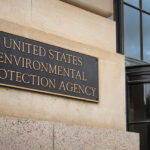(Oil & Gas 360) – A dozen environmental groups have indirectly targeted some of the country’s largest oil and refining companies. The groups claim that the Environmental Protection Agency (EPA) has failed to hold the companies’ coke-making plants accountable for violating the Clean Water Act.
The groups say the EPA has never set a national standard for water pollution from coking plants, the bulk of which are decades old.
Coking involves heating oil remaining from refining. Thermal cracking (i.e., distillation) leaves solid petroleum coke from separation in a process known as calcining. The result is an energy-dense petroleum product “green” coke, used in power plants and cement kilns, aluminum smelting, steel production, paint and plastics production, and other thermal-heavy industrial processes.
Petcoke is a revenue stream for some of the country’s biggest oil and gas companies. ExxonMobil, Chevron, Valero, Marathon, and Phillips 66 have coking plants. The petition says there are thirteen such coking plants across the country.
It also claims none of the plants limit discharges of vanadium or lead and that the EPA has no provisions for monitoring coke plant stormwater, which can wash pet-coke residues, such as ash and raw pet coke waste, into local watersheds.
For air emissions control, petcoke releases more CO2 per unit of energy than most types of coal. It can also contain higher levels of sulfur and nitrous oxide, both contributors to acid rain. The process also releases trace minerals in particulate matter.
There are several technologies to mitigate the environmental impacts of coking.
Treatments for wastewater include adding chemicals to form larger particles for easier capture. Likewise, hydrogen peroxide, UV light, or microorganisms can break down organic pollutants. Wastewater can also simply be absorbed by other materials to make it easier to dispose of.
For emissions, particulate matter from flue gases can be captured by charging the particles for electrostatic capture. Fabric filter bags capture larger particle sizes, and pet coke plants can use scrubbers like those commonly found at coal plants, which use liquid to wash down and capture sulfur particulate matter and acid gases. Nitrous oxide can be mitigated by injecting ammonia into the flue gas and passing it over a catalyst.
The petition, citing Section 304 of the Clean Water Act, says the EPA needs to categorize the plants as sources discharging toxic or nonconventional pollutants.
By Jim Felton for oilandgas360.com








